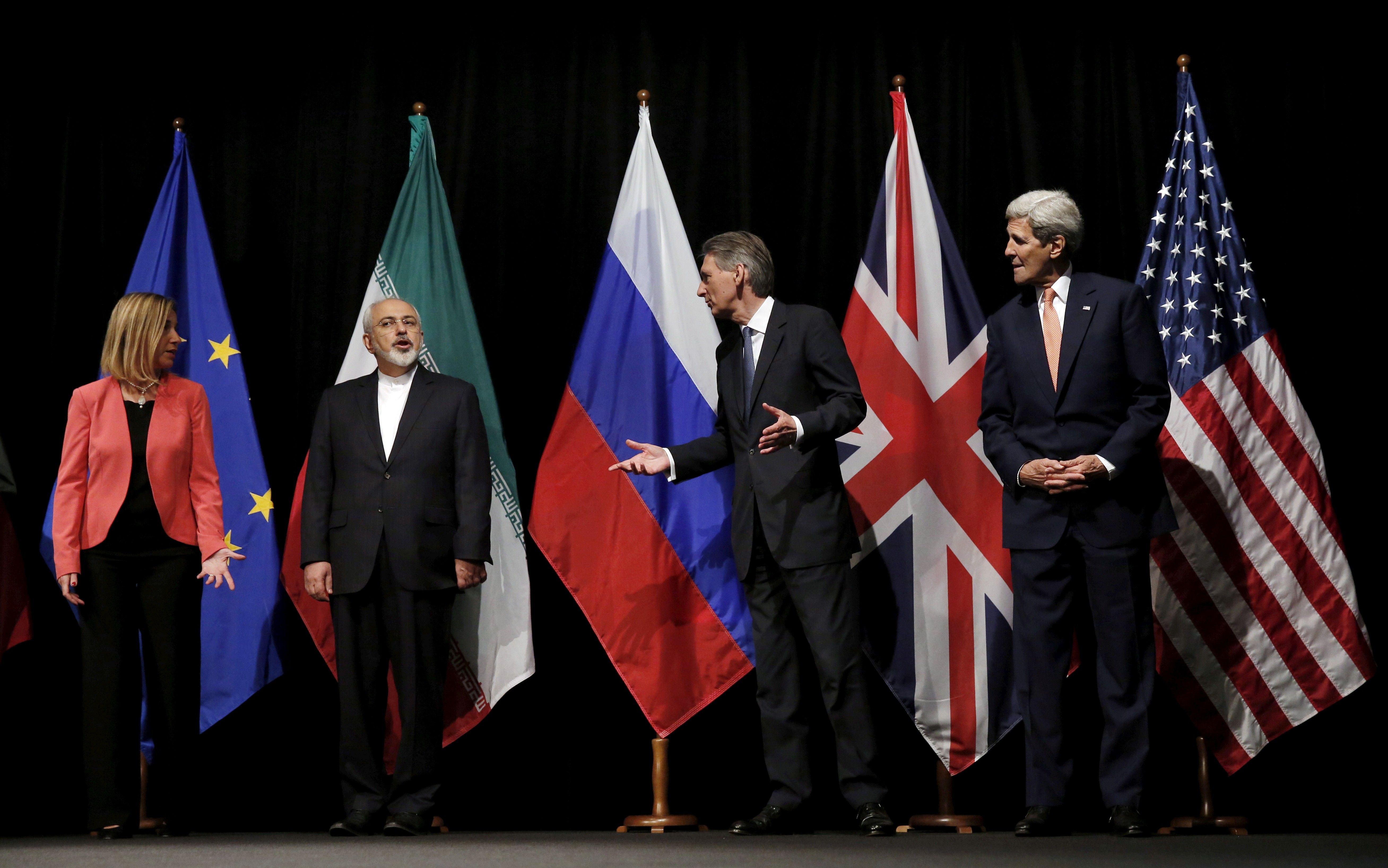By Steve Holland
WASHINGTON, May 8 (Reuters) – U.S. President Donald Trump will announce on Tuesday whether he will pull out of the Iran nuclear deal or stay in and work with European allies who have struggled to persuade him that it has successfully halted Iran’s nuclear ambitions.
Trump has consistently threatened to pull out of the 2015 agreement because it does not address Iran’s ballistic missile program or its role in wars in Syria and Yemen, and does not permanently prevent Tehran from developing nuclear weapons.
European leaders have warned that a U.S. withdrawal would undo years of work that led to and sustained a landmark deal that has kept nuclear weapons out of Iran’s hands.
It could also ratchet up tensions in a region riven with interrelated conflicts, including the multi-layered conflict in Syria where Iran’s presence has brought it into conflict with Israel. It will also impact oil markets due to Iran’s role as a major exporter.

“This deal … is a factor of peace and stabilization in a very eruptive region,” French Defence Minister Florence Parly told RTL radio.
Trump, in a tweet on Monday, said he would make the announcement at 2 p.m. (1800 GMT) on Tuesday.
Iran suggested its economy would not be hurt whatever happened, but its rial was near record lows against the dollar in the free market as Iranians tried to buy hard currency, fearing financial turmoil if Trump quits the deal.
“We are prepared for all scenarios. If America pulls out of the deal, our economy will not be impacted,” central bank chief Valiollah Seif said on state television.
“One man in one country might create some problems for us for a few months, but we will overcome those problems,” President Hassan Rouhani said in televised remarks.
‘STAND ON OUR OWN FEET’
“If we are under sanctions or not, we should stand on our own feet. This is very important for the development of our country,” Rouhani said.
A senior U.S. official close to the process said France, Germany and Britain had moved significantly to address Trump’s concerns over the ballistic missile program, the terms under which international inspectors visit suspect Iranian sites and “sunset” clauses under which some terms of the deal expire.
But it was not clear whether those last-ditch efforts had made enough progress to persuade Trump to stay in the pact.
A senior French official appeared unconvinced about a possible meeting of minds between Trump and the Europeans.
“I think in Washington it was quite clear the president was convinced that Trump was heading to a negative decision so we have been preparing more aggressively the hypotheses of a partial or total pullout”, the official said.

The Iran deal, negotiated during the administration of Trump’s Democratic predecessor, Barack Obama, eased economic sanctions on Iran in exchange for Tehran limiting its nuclear program.
Trump has called it the “worst deal ever negotiated” and he wants Britain, France and Germany – which also signed the pact along with Russia and China – to toughen up the terms.
In the past few weeks, the Republican president has consulted either in person or by telephone with leaders of all three countries.
British Foreign Secretary Boris Johnson made the rounds in Washington on Monday, including talks with Vice President Mike Pence and Secretary of State Mike Pompeo.
Still, European diplomats privately said they expected Trump to withdraw from the agreement.
Two White House officials and a source familiar with the debate inside the administration said last week Trump had all but decided to pull out.
Under the deal, known as the Joint Comprehensive Plan of Action (JCPOA), the United States committed to ease a series of U.S. sanctions on Iran and it has done so under “waivers” that effectively suspend them.
WAIVERS
Trump has until Saturday to decide whether to extend the waivers or withdraw and reintroduce sanctions related to Iran’s central bank and Iranian oil exports.
That would dissuade foreign companies from doing business with Iran because they could be subject to U.S. penalties.
Iran has said it will not renegotiate the accord and threatened to retaliate if the United States pulls out, although it has not said how. Diplomats and military experts say Tehran could seek to resume its nuclear arms program or step up its military involvement in Iraq, Syria, Yemen and Lebanon.
The Kremlin said on Tuesday the withdrawal of the United States from the Iran nuclear deal would have harmful consequences.
Rouhani suggested on Monday that Iran might remain in the nuclear deal even if Trump abandons it and imposes sanctions. But he also warned that Tehran would fiercely resist U.S. efforts to limit its influence in the Middle East.
Israel is widely believed to be the only nuclear-armed state in the Middle East, although it neither confirms nor denies possessing atomic weapons.
Financial markets are also watching Trump’s decision closely. On Tuesday, oil retreated from 3-1/2 year highs as investors waited for Trump’s statement.
Economists inside and outside Iran said the Rial was being driven down by heavy demand for dollars among Iranians who feared a U.S. pullout from the agreement would lead to the resumption of U.S. sanctions against Tehran, deterring other nations in Europe and Asia from developing business ties.
(Additional reporting by Arshad Mohammed, Sybille de La Hamaide and John Irish in Paris, Parisa Hafezi in Ankara, Bozorgmehr Sharafedin in London; Writing by William Maclean; Editing by Janet Lawrence)

